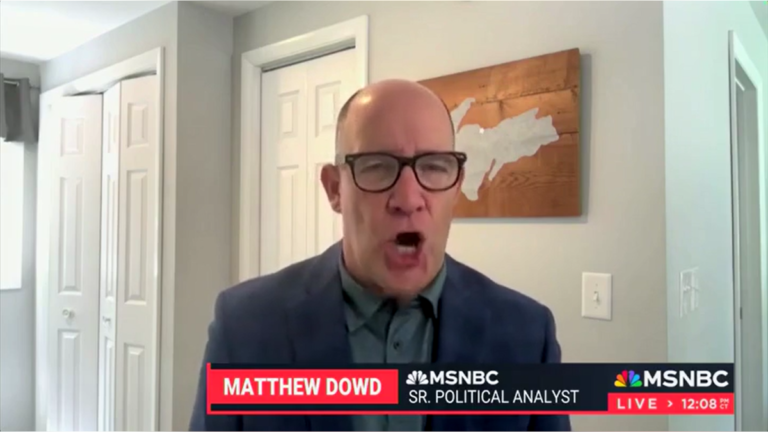Comcast Issues Rare Reprimand Following MSNBC Contributor’s Controversial Remarks
In a striking turn of events, Comcast’s top executives publicly reprimanded MSNBC following controversial remarks made by one of its paid contributors, Matthew Dowd. This reprimand comes just two days after Dowd linked the shooting of Charlie Kirk, a prominent conservative commentator, to what he termed “hateful thoughts” and “hateful words.”
The Incident: A Shocking Statement
Shortly after the shooting of Charlie Kirk, Dowd made an incendiary comment during an appearance on MSNBC’s "Katy Tur Reports." He stated:
“Hateful thoughts lead to hateful words, which then lead to hateful action… that’s the environment we’re in.”
This comment ignited immediate backlash, leading to Dowd’s apology and subsequent termination later that night. Dowd’s remarks referred to the broader implications of divisive political rhetoric in the current climate.
Comcast’s Response
On Friday, Comcast CEO Brian Roberts, alongside other executives, addressed the situation through a company-wide memo that underscored the need for civil discourse. The memo stated:
“The tragic loss of Charlie Kirk… reminds us of the fragility of life and the urgent need for unity in our nation. There is no place for violence or hate in our society.”
Key Points from the Memo:
- Acknowledgement of Dowd’s insensitive remarks.
- Emphasizing the importance of fostering respectful dialogue.
- Requesting employees to embody the company’s values in their work and communities.
The executives condemned the remarks as not aligning with the network’s mission of encouraging respectful debate, stating that disagreement should occur "robustly and passionately, but ultimately, with respect."
Matthew Dowd’s Defense
Despite the fallout, Dowd stood by his comments, claiming they were taken out of context. In a follow-up post on Substack, he explained:
“When the anchor came to me to comment on the ‘national environment,’ the only thing known at the time was shots were fired… Remember, Kirk is a diehard advocate of the 2nd amendment.”
Dowd shifted blame onto what he called the “Right Wing media mob” for the backlash, suggesting that MSNBC reacted hastily due to external pressures.
The Broader Impact on MSNBC
This incident raises questions about the future editorial direction of MSNBC, soon to be rebranded as MS NOW. Under the leadership of new president Rebecca Kutler, MSNBC has seen a shift towards a more left-leaning stance, drawing criticism from various quarters.
Criticism from the Right
Conservative voices have pointed out the need for journalism that sticks to facts, particularly in breaking news situations. David Bozell, president of the Media Research Center, remarked:
“In a breaking news situation, you look into the camera, you get the news in your earpiece, and you just stick to the facts and script as you know it.”
The Transition of MSNBC
The impending renaming of MSNBC to MS NOW presents an opportunity for the network to redefine its editorial identity. With Kutler’s background at CNN during its transition to a more partisan tone, many speculate that the network will continue to lean left, distancing itself from its previous branding and association with more traditional journalism.
Conclusion: A Call for Unity
The Comcast memo highlights the urgent need for unity and constructive dialogue in a time of division. As MSNBC prepares for its rebranding and future content direction, the expectations for respectful and factual reporting remain paramount. The incident underscores the delicate balance between commentary and responsible journalism, reminding all media professionals of the weight their words can carry in today’s highly charged political environment.
For more information on media ethics and the role of responsible journalism in today’s society, explore resources at Poynter and Media Ethics Initiative.


